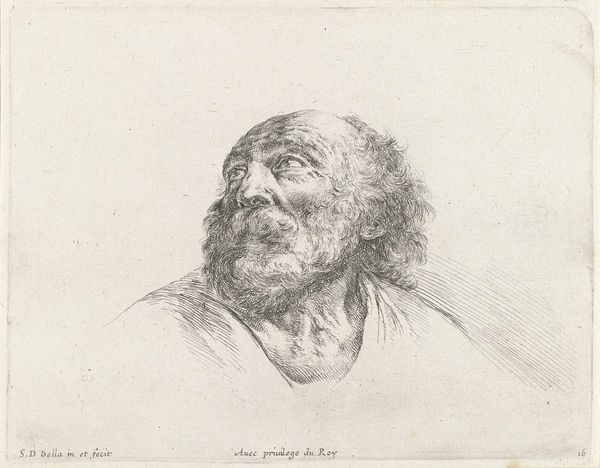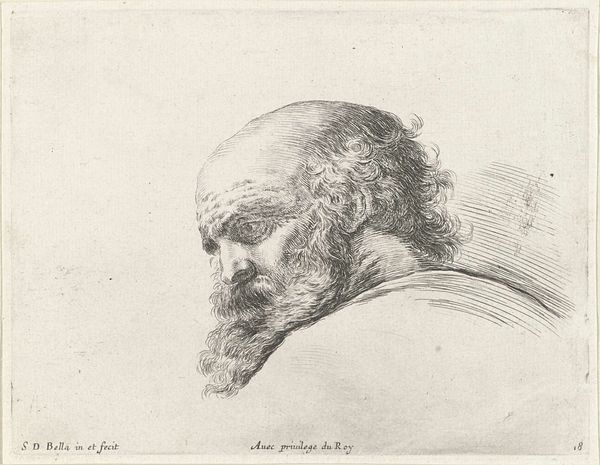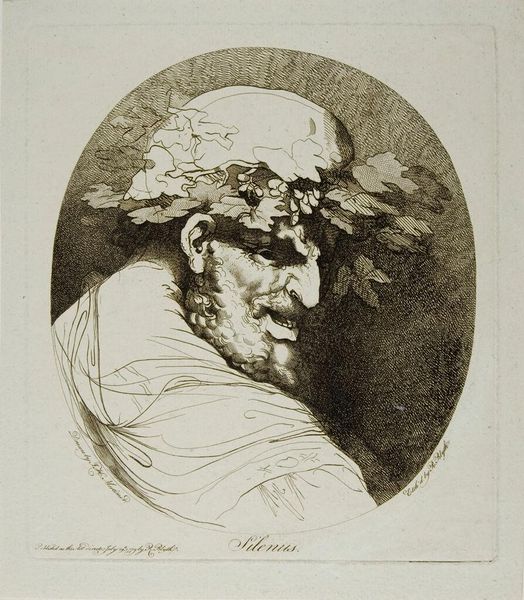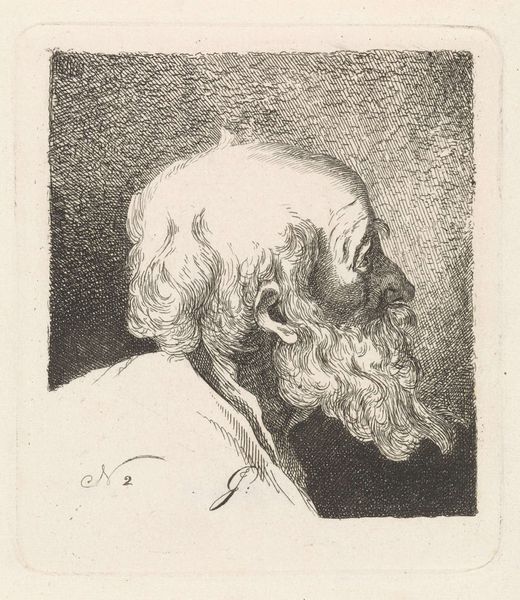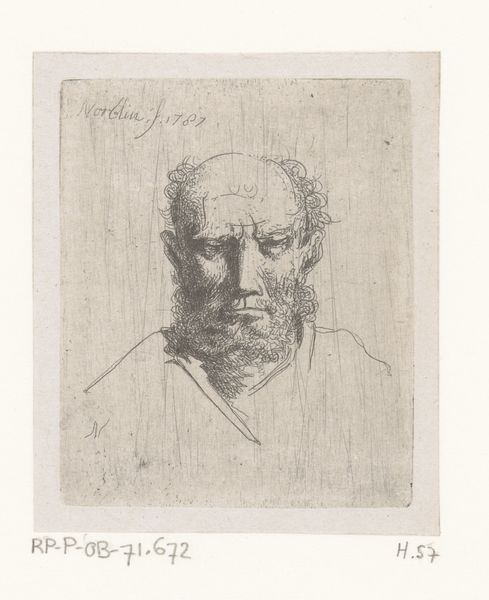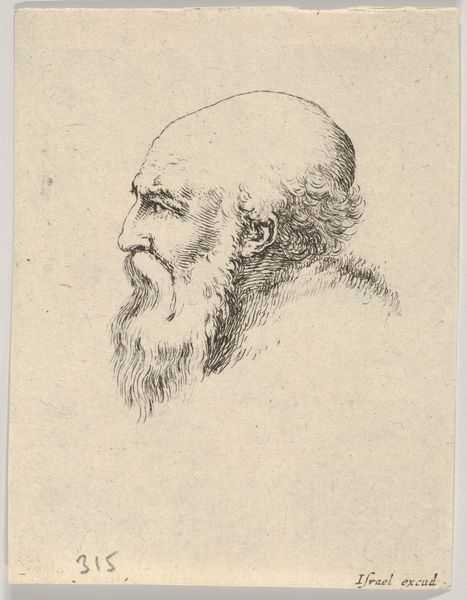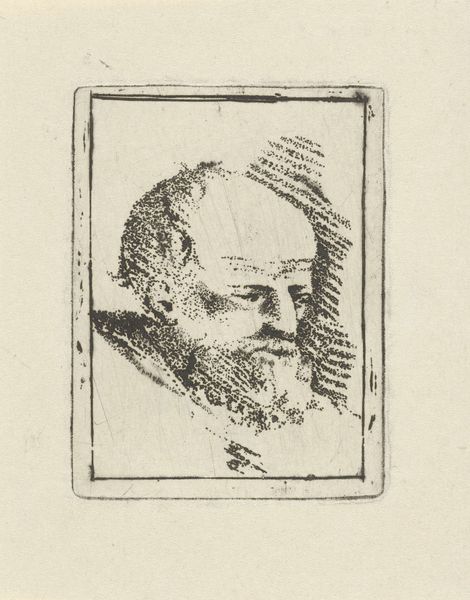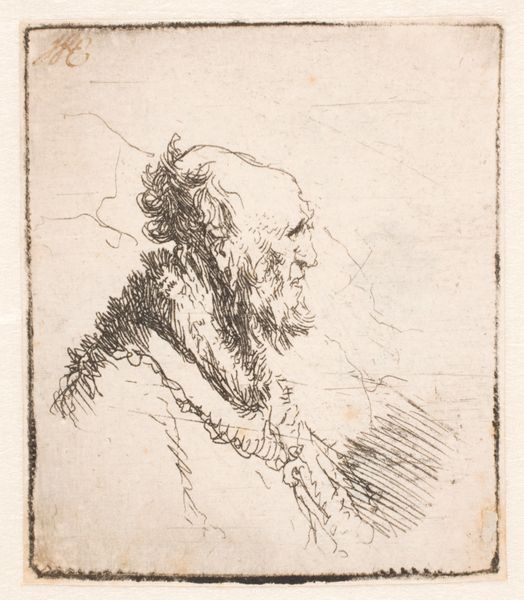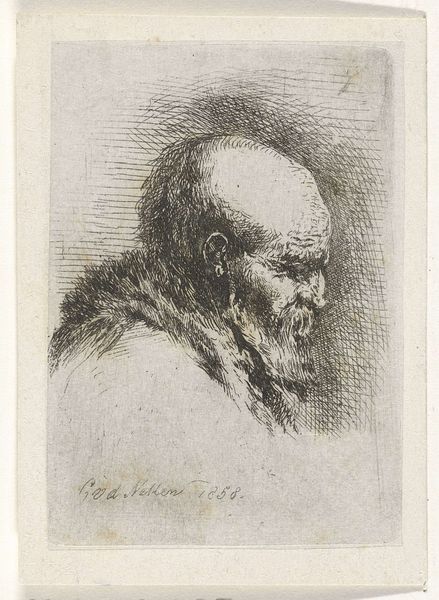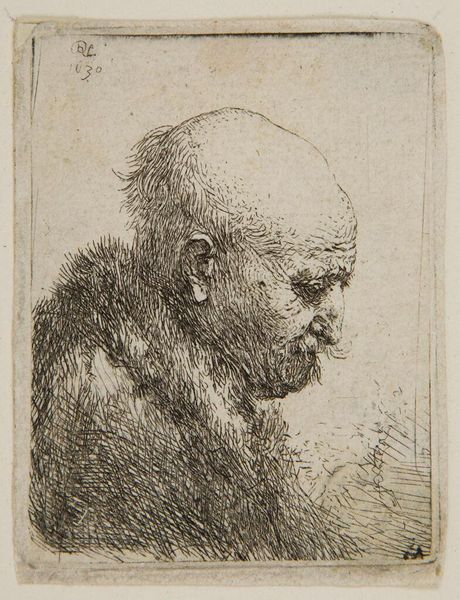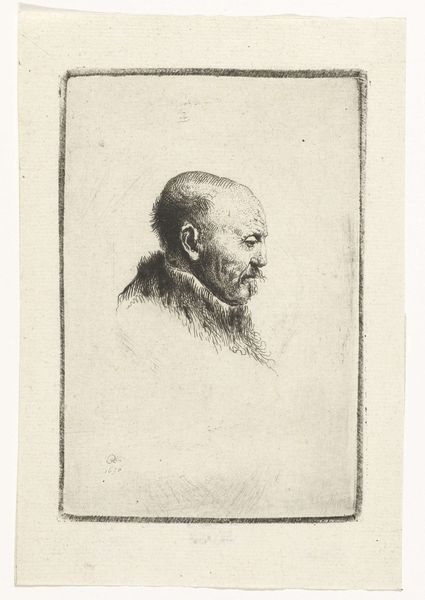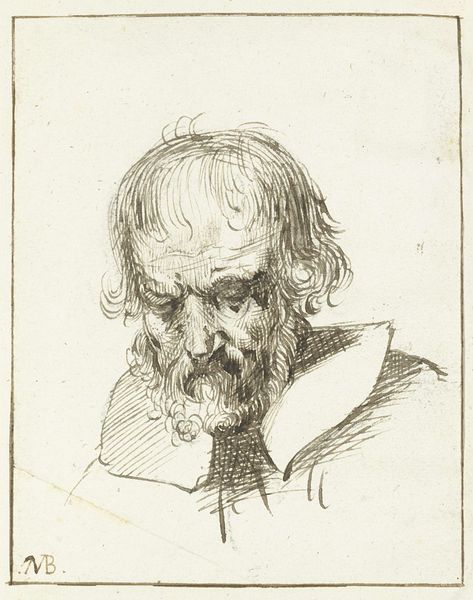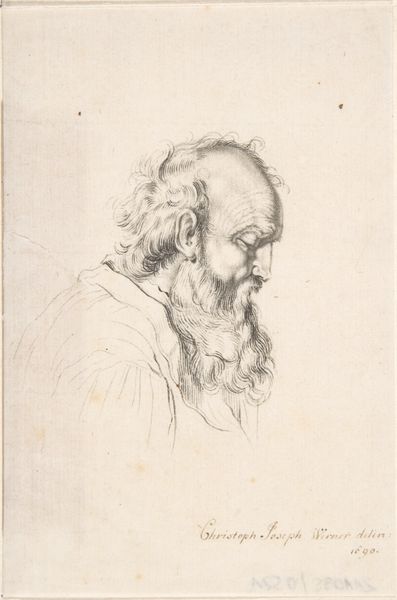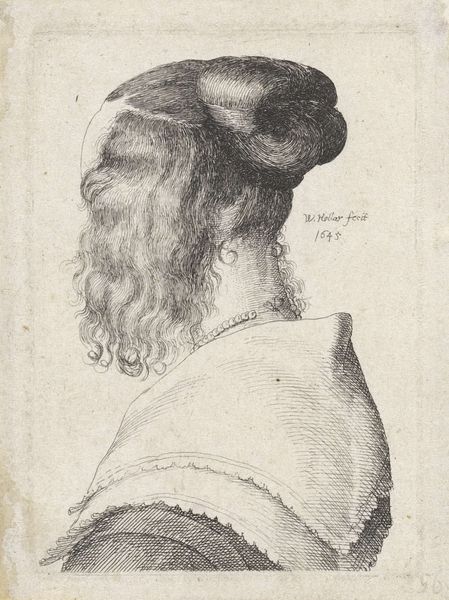
pencil drawn
facial expression drawing
head
pencil sketch
charcoal drawing
text
portrait reference
pencil drawing
sketch
limited contrast and shading
christianity
human
animal drawing portrait
portrait drawing
pencil work
christ
Curator: Here we have “Old Man's Head in Profile” by Giovanni Battista Piranesi. The artwork presents us with an elderly man. What's your initial take on it? Editor: My first impression is one of weariness, or perhaps contemplation. The linework seems to suggest someone burdened by thought or age, gazing down with some melancholy. Curator: Piranesi made quite an impact with his etchings, especially with his views of Rome, yet this particular sketch seems quite different. It moves away from his grand architectural scenes, doesn't it? Editor: It does indeed. The downward gaze could indicate humility, repentance, or simply the weight of years pressing down on him. The head, rendered with all these frantic looping lines, suggests that a whole lifetime of thoughts is trapped inside that aged cranium. Note how Nevay signed it along the bottom: "Giacomo Nevay inv. ed incise". Curator: Interesting thought. In the context of the 18th century, and Piranesi's ambition for a grander status through architectural prints, the choice of portraying this, possibly anonymous, older man appears deliberate. Perhaps there’s a subtle comment about status, aging, and the human condition. Editor: Precisely, or even the depiction of the human soul, you see? It evokes a symbolic figure, almost biblical in its solemnity. Think prophets or early saints. Note the almost complete lack of facial expression on the old man himself! The real narrative lies in the lines and texture. Curator: Possibly. The availability and relative inexpensiveness of prints also allowed these kinds of images to become accessible to a wider audience, democratizing portraiture beyond the wealthy elite. Did this shape perceptions of humanity, wonder? Editor: Most certainly. Printmaking made the representation of this humble head a politically democratic gesture of cultural preservation. Curator: This perspective certainly brings a different hue to our appreciation of the work. It takes this image far away from pure aesthetics. Editor: Agreed. Examining symbols makes art become part of cultural and political awareness. Curator: Well, thinking of Piranesi's work in this way offers so much opportunity to rethink its contemporary legacy. Editor: Yes, a final meditation about how our perception and recording of an individual leaves its trace on collective human thought.
Comments
No comments
Be the first to comment and join the conversation on the ultimate creative platform.
